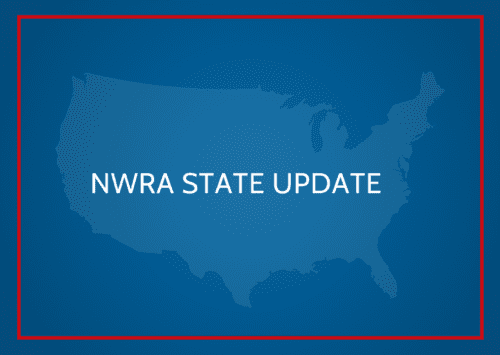NWRA State Update: Pennsylvania Considers Various Bills Focused on States of Emergency
In Pennsylvania, both chambers return from primary election week for three days of scheduled session. Following voter approval of two constitutional amendments to alter the process around disaster emergency declarations, Gov. Tom Wolf again extended the COVID-19 state of emergency. Under the new 21-day limit, it will be in effect until June 9. Previously, disaster declarations were in effect for 90 days and could be extended by the governor. The legislature will have the power to declare and end such states of emergency without any role for the executive.
The Senate considered its package of regulatory reform bills in Senate Appropriations on May 24, teeing them up for consideration by the full Senate later this week. Senate Bill 28, Senate Bill 26, Senate Bill 520 and Senate Bill 533 provide for third-party review of “delayed” permit applications, establish separate criteria for “economically significant” regulations with an impact of $1 million or more and prohibit the seeking of public comment and the adoption of regulations during a state of emergency. The full House is also scheduled to consider House Bill 939 sponsored by Rep. Kate Klunk (R-169), which creates an “Independent Office of the Repealer.” The Wolf administration continues to oppose these regulatory reform proposals.
The full House will also consider House Bill 406 sponsored by Rep. Jim Cox (R-129) to reimpose work search conditions on the receipt of unemployment compensation. The requirement was temporarily rescinded during the height of the pandemic. The House Labor & Industry Committee will consider HB 508 to phase out Pennsylvania’s participation in three federal programs providing enhanced unemployment compensation. Rep. Cox, the sponsor of both bills, views them as a way to encourage more individuals to go “back to work.”
On May 26, the Senate Labor & Industry Committee will consider Senate Bill 567, which would require the Commonwealth to adopt federal Cybersecurity and Infrastructure Security Agency guidance on the definition of “essential business” during future emergencies. The bill is in response to complaints that the Wolf administration made arbitrary and conflicting determinations on which businesses qualified as “essential.”

